In the wake of the societal movement forcing institutions across the United States to address their racist histories, Grinnell alumnus John Aerni-Flessner `01 has submitted a petition to the Grinnell College administration requesting that they remove the Grinnell Athletics nickname, “the Pioneers.” As of Sept. 1, the petition had 749 signatures, from students, alumni and staff.
The petition asks that the name be changed to something more suitable for a college that tends to associate itself with social justice, arguing that the word “Pioneers” is implicitly celebrating Western settlement on Indigenous people’s land and concurrent acts of genocide.
“The connections between pioneers and settlers’ colonialism are ones people are going to make, no matter what the publicity does,” Aerni-Flessner said. “When the sports wires go out and the [Midwest] Conference information goes out, it’s [Grinnell College] identified as ‘The Pioneers.’ The external community is seeing it as the face of the institution.”
Student Government Association (SGA) President Lana Katai ’21 distributed the petition to students via an all-campus email.
The connections between pioneers and settlers’ colonialism are ones people are going to make, no matter what the publicity does. – John Aerni-Flessner ’01.
On the Pioneer name, Katai said, “It’s only talked about within athletics, but that’s still a part of the student body that people have to engage with.” Katai is a student athlete herself. Eight of the petitioners are members of the Grinnell College Athletic Hall of Fame (Aerni-Flessner is one of them).
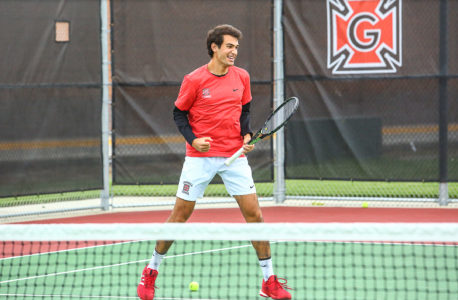
Katai sees the name change as the start of a new avenue of discussion opening at Grinnell this year. “There’s never been a reaction not only to the names of our teams but what it means to be at a liberal arts college, and what it means to have all these all white male teams,” she said.
As of now, there is no prominent alternate for the nickname, but the Aug. 20 email from SGA includes a form that is open for students to suggest ideas.
There’s never been a reaction not only to the names of our teams but what it means to be at a liberal arts college, and what it means to have all these all white male teams. – Lana Katai ’21
The most frequently mentioned name on the suggestion form is “Squirrels,” reflecting the College’s non-athletic mascot, Scarlet the Squirrel. Other suggestions range from “Visionaries” to “Prairie Dogs.” One student who responded to the survey questioned the necessity of having a new nickname to replace the Pioneers at all.
Four respondents further observed that the Honor G symbol, also affiliated with Grinnell Athletics, resembles the Nazi Iron Cross and asked for the Administration to consider the symbol’s significance and impact in addition to that of the Pioneer name.
In response to the petition, President Anne Harris said the College is prepared to engage in discussion about the nickname.
“The leadership team is also actively interested in this issue, and we are mobilizing to organize a process that engages the matter of the College’s athletic nickname,” Harris wrote in a Sept. 3 email sent to Aerni-Flessner, College and SGA administrators and The S&B.

















































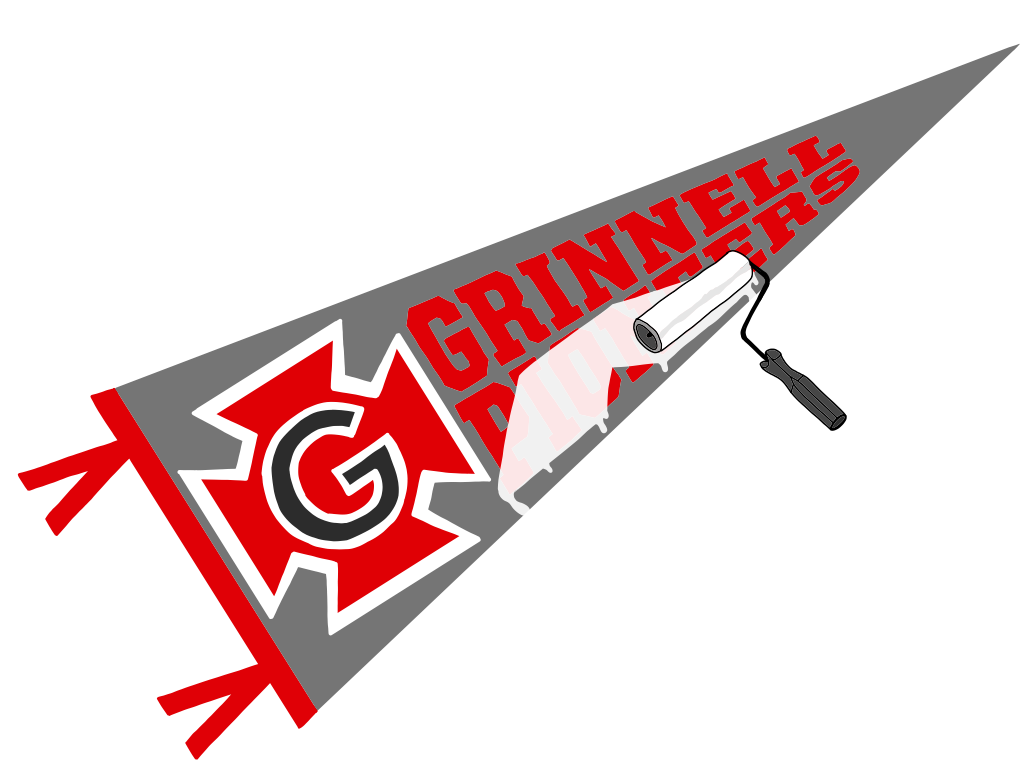







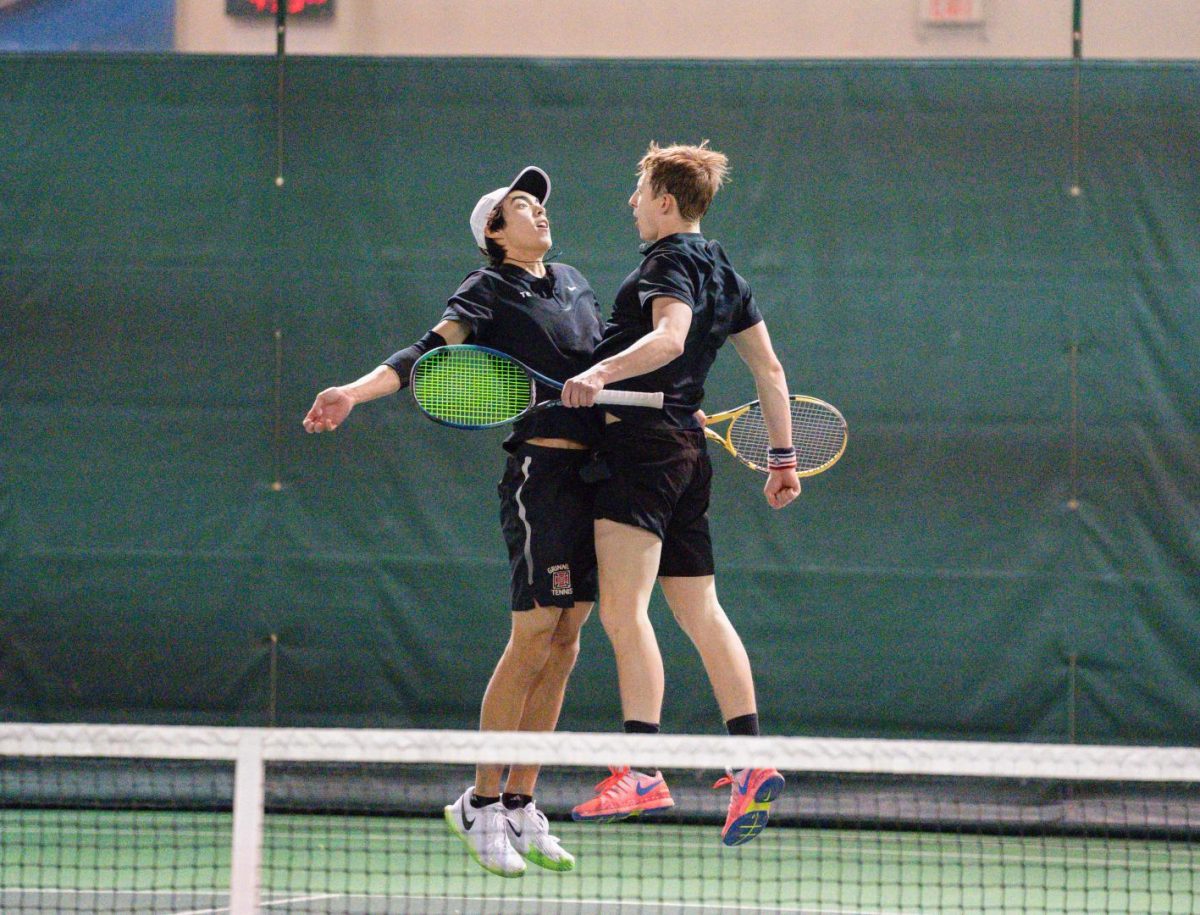

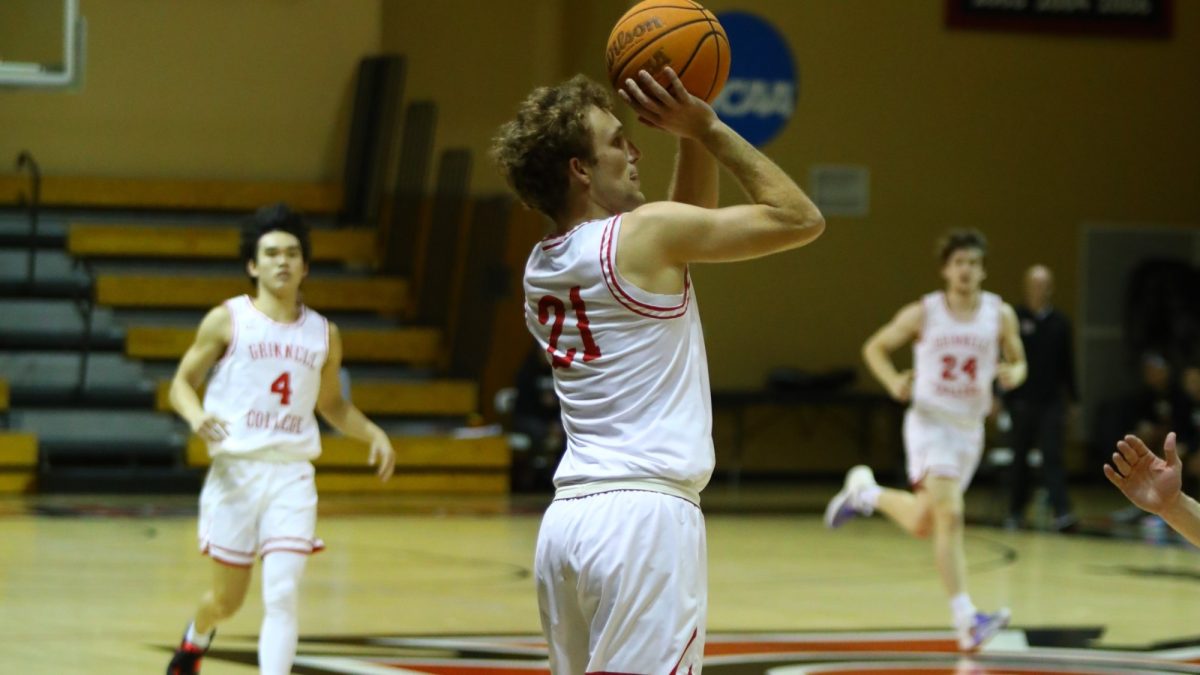
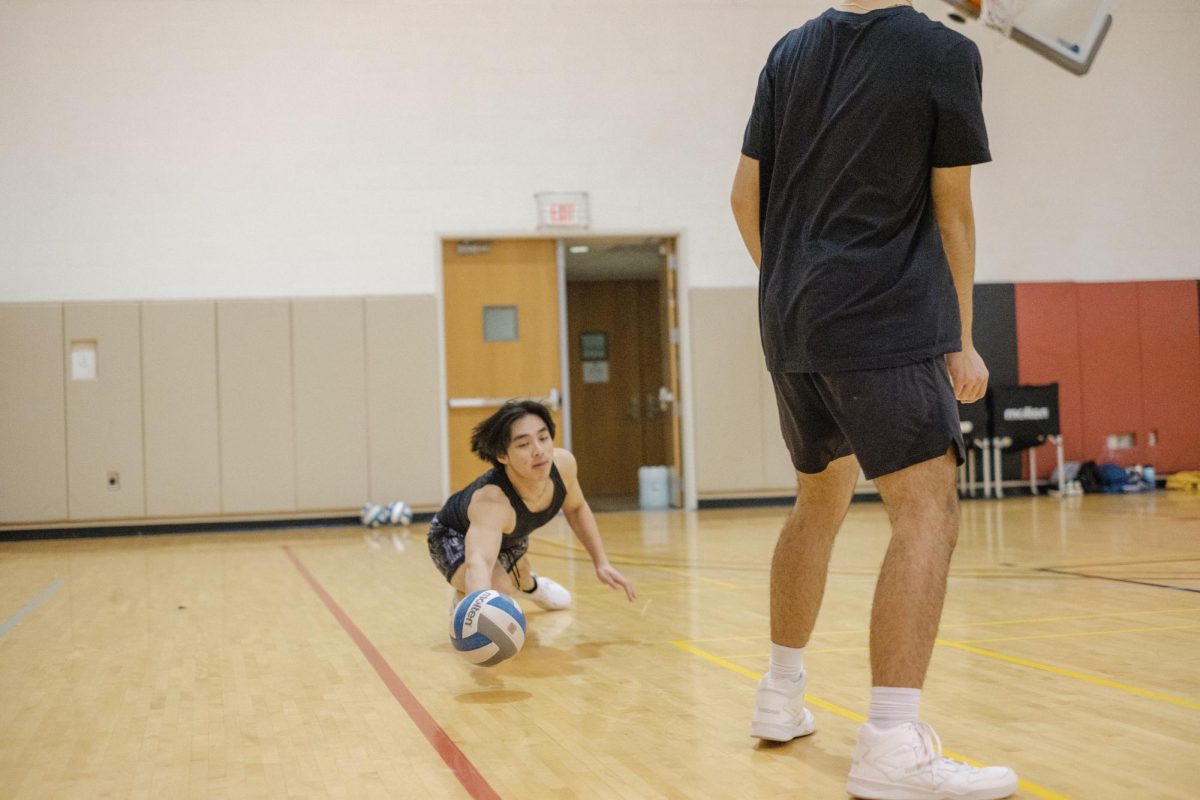
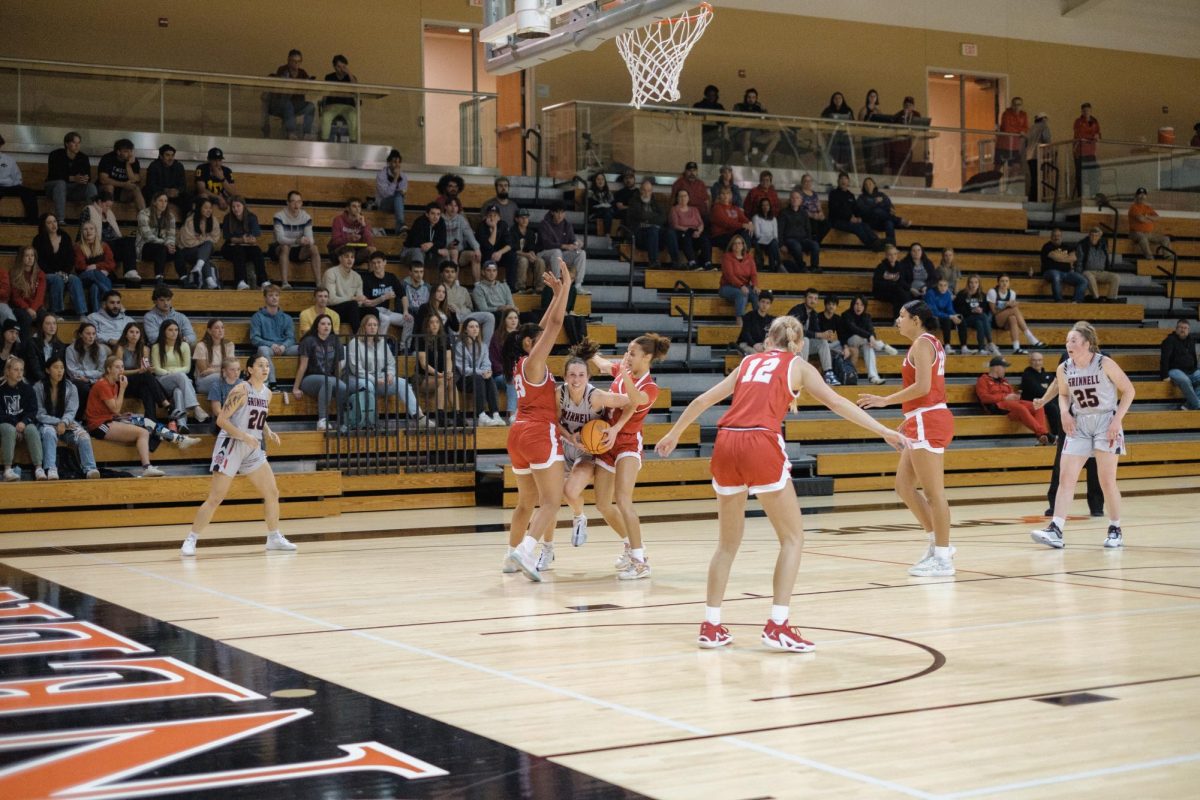
Gregory Lee • Oct 1, 2020 at 9:25 pm
With all due respect, this is a solution in search of a problem. As the previous commenter pointed out, the word “Pioneer”, in itself, can carry so many meanings. As (perhaps!) the first college established west of the Mississippi River, everyone associated with the founding of Grinnell was a pioneer. That’s the spirit and courage that the nickname invokes. First baseball game, first football game, first female students, first African American students, so many firsts, aka “pioneers”.
Any association of Grinnell’s “pioneer” with the dispossession of Native peoples would need to be found in some representation that I have never seen at the school, including throughout my experiences with GC Football and Track.
In my community, there is a school with the nickname “Plainsmen”. The mascot is a coonskin cap wearing fellow, toting a musket. In this era of raised consciousness, the school recently removed the rifle. At Grinnell, I’ve never seen a graphic presentation of a Pioneer; not as a farmer, a covered wagon rider, and certainly not as an Indian fighter.
Historically, by the time Grinnell was founded, the Native peoples of Iowa had moved (or been moved) away. In fact, some members of the Iowa Band were disappointed that there were no “Indians” around to save! Eventually, at least one of the founders moved further west, wanting to live closer to indigenous people. Yes, I read Joe Wall’s history of Grinnell!
In the final analysis, all of America was home to some other group before Europeans arrived. But Grinnell’s historical Pioneers were not the ravenous lot that some might be thinking of when they hear that term.
Oh, and the Iron Cross of Grinnell Athletics? The symbol itself predates the Third Reich by a millennia (at least), and Grinnell has used it since the late 1890’s. The College should not even consider abandoning its own noble imagery just because said image was co-opted by a cult of sociopaths? Who would benefit from that?
RICHARD D DEBACHER, '66 • Sep 22, 2020 at 12:17 pm
While my statement above was awaiting “moderation” my sharp-eyed Grinnell classmate, David Miller, reminded me it was the Grinnell 14 that undertook the pioneering anti-nuclear peace protest in Washington; my apologies for shorting the group by four. And I could have gone on at length about pioneering Grinnellians. My close friend and classmate and now Chair of the Grinnell Board of Trustees (and former President of both Drake University and Whitman College) David Maxwell, urged me to cast pioneering light on Thomas Cech, ’70, Nobel Prize winner in chemistry. And I could have added another pioneer in student misconduct, academy award winning actor, Gary Cooper, first Grinnellian to be disciplined for riding a horse through the South Campus loggia. The possibilities are endless.
The “Westward Expansion” began on the day the very first European settlers encroached on land West of the Atlantic shoreline. In my view American history has shorted that blot on our history just as we’ve repackaged the story of African Americans to accommodate the fantasies of “American Exceptionalism.” By acknowledging and teaching the dark side of our history along with that which is admirable and worthy of our pride, we can live up to the best of the stated intentions of the founders of our nation and of our college. Peace and goodwill, fellow Grinnellians everywhere. RD
RICHARD D DEBACHER, '66 • Sep 21, 2020 at 9:47 pm
We cannot deny nor should we celebrate that the founding of the college was inextricably tied to the mythology of Westward expansion. From Horace Greeley’s apocryphal instigation to “Go West, young man,” much of the college lore is tied to this history and to the claim of first this or that West of the Mississippi. But shortly after its founding, the college did, indeed, become a pioneering institution in numerous fields of endeavor, including social justice and the town opened a stop on the underground railroad. J.B. Grinnell, himself sheltered a fugitive John Brown.
The college has no monument glorifying a land-grabbing pioneer who drove Native Americans off their land. Most of that occurred with very little violence in Iowa itself and before the Iowa band set out. We can’t change that. Every college and university in America has been built on land that was made available through acts of violence, treachery, and deceit.
If our scholar-athletes prefer, let them enter into competition as the Grinnellephants. But I see no compelling need to disassociate the college entirely from its pioneering tradition of which we should be proud. A pioneering college, established by pioneers to promote learning and advance justice and understanding on frontier land, all the time acknowledging that this land, like all land in America, was taken by force. No coonskin-hat wearing, musket-bearing pioneer for a mascot. But proud pioneers in theatre like Hallie Flannagan, 1911, the first woman to be awarded a Guggenheim Fellowship. Pioneering communist, Sen Katayama, 1892, one of the original members of the American Communist Party and co-founder of the Japanese Communist Party in 1922, he was a pioneer in Grinnell’s proud history of civil disobedience, arrested and jailed in the Tokyo Streetcar Strike. He’s also the only Grinnellian in the Kremlin Wall Necropolis in Red Square.
Pioneering scientists like Clair Cameron Patterson, 1945, who led, so to speak, the fight to put an end to leaded gasoline. Or Robert Noyce, 1949, who pioneered the development of integrated circuits that led directly to the computer revolution. He also was a pioneer in student misbehavior, stealing a pig from the Mayor of Grinnell for campus luau. Or Herbie Hancock,1960, pioneering jazz pianist whose career has spanned the eras from post-bop to electronic fusion and beyond. Or Peter Coyote,1964, pioneering peace activist, actor, and writer who joined the Grinnell 10 in an appeal to end the nuclear arms race — an effort that was acknowledged by President Kennedy and was credited with launching the 1960s student peace movement.
Let’s not hide the facts of Grinnell’s founding but celebrate all the pioneering that its talented faculty and alumni have achieved. As the old fight song says: “Everybody stand and cheer, when we see these pioneers” — bold, creative, and generous, they have contributed much for which we all can be proud. Thank you.
MSC • Sep 14, 2020 at 12:04 pm
There are a lot of turkey vultures on campus. I propose either Turkeys or Vultures.